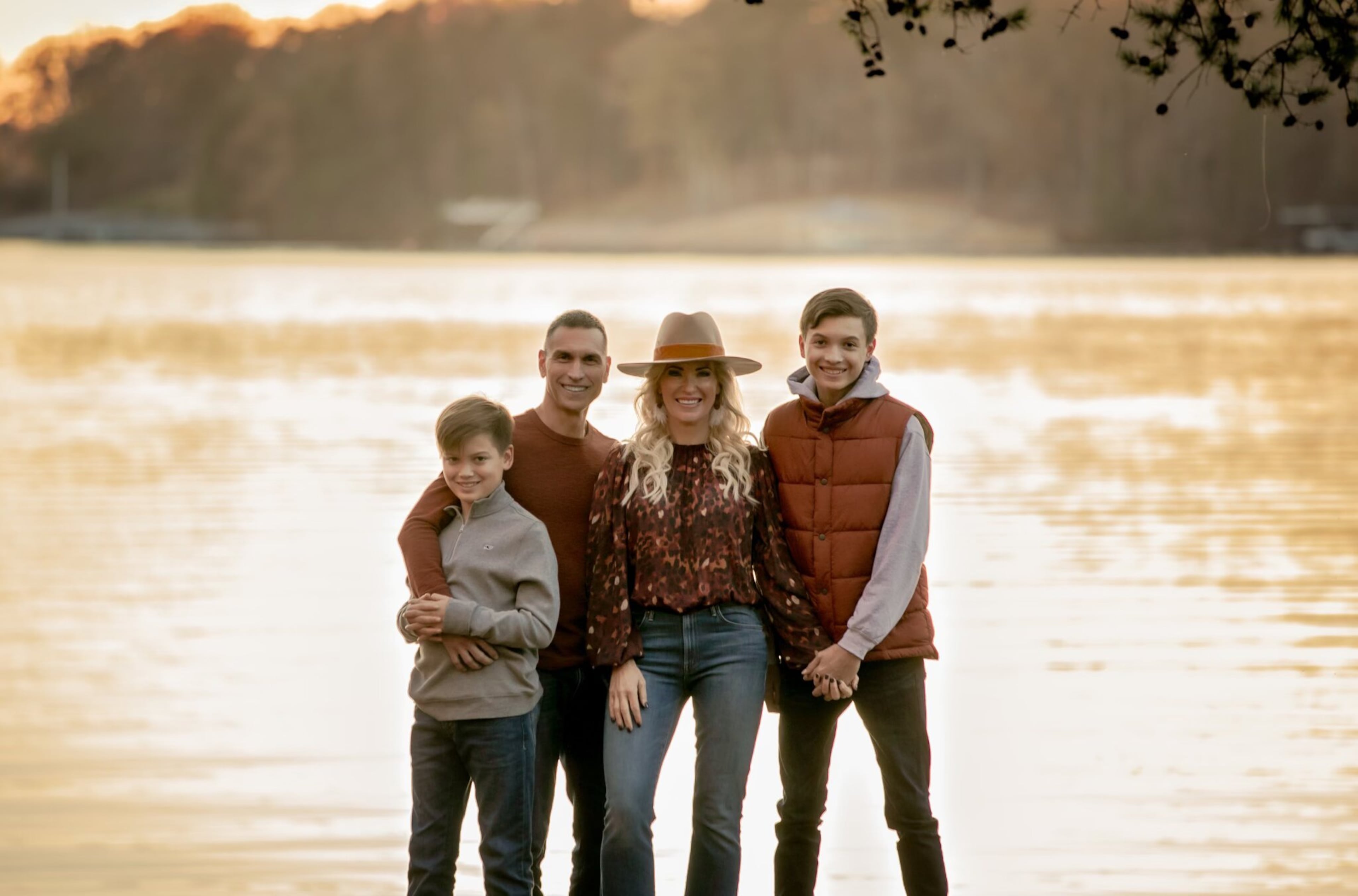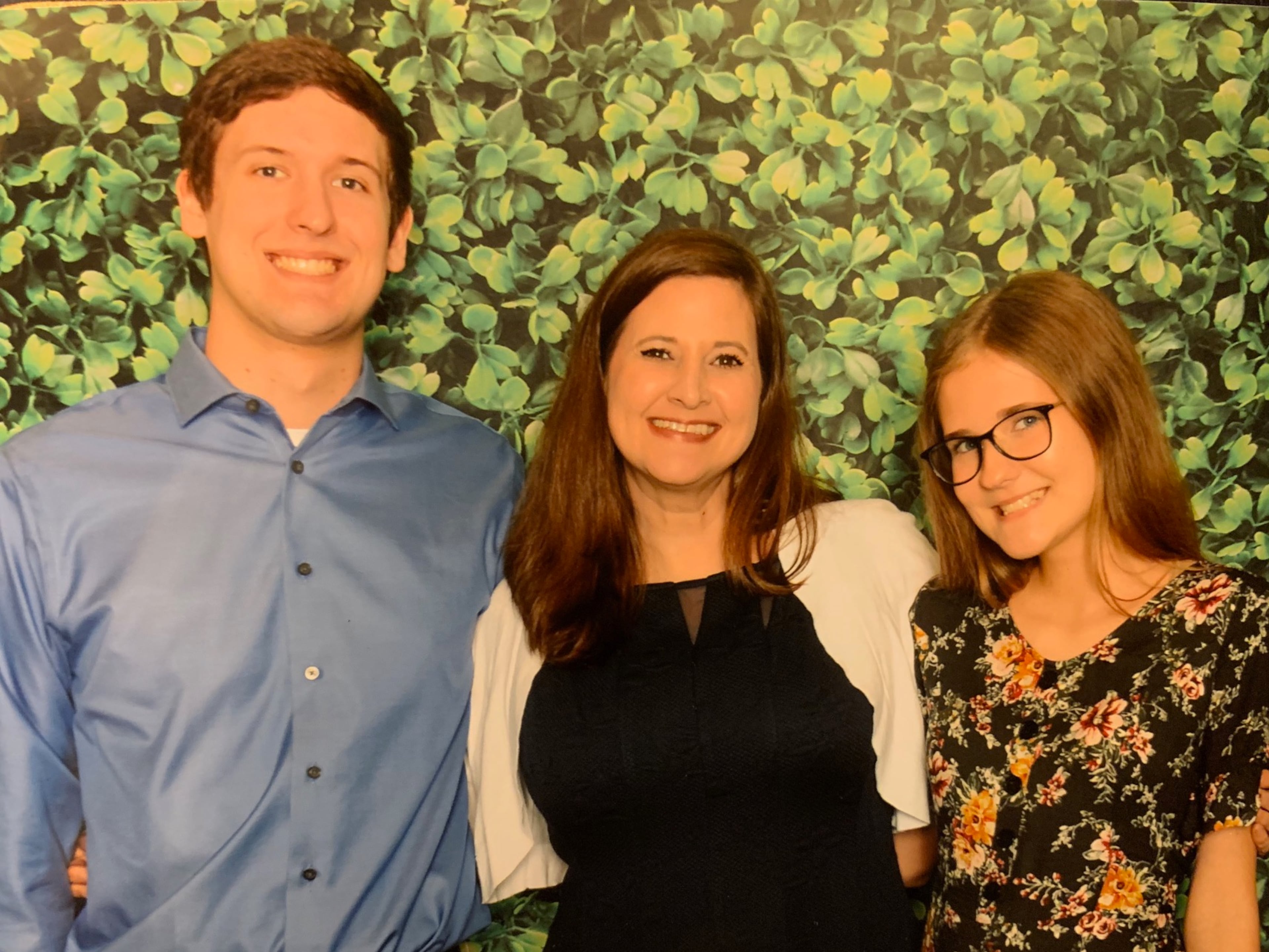Parenting over 55: The perks and potential pitfalls
Parenting is commonly described as a challenging and rewarding journey at any age. As the average age of parents increases, some different perks and pitfalls of the parenting experience may emerge for more mature parents.
“I feel that I’m a better, less anxious parent due to my life experience,” said Kevin Perpetua, 55, of Milton, who was 38 when his first child was born.
While he and his wife Kim didn’t intentionally plan to have kids later in life, they feel it has benefitted them and their sons, now ages 17 and 14. The couple met a bit later in life.

“We wanted some time before having kids to enjoy time together as a couple,” Perpetua said. “Also, we were both focused on our careers at that time and were dealing with three job-related relocations.”
Once they knew they were headed back to Atlanta, they decided that would be a good time to start a family.
Perpetua cited financial stability as another perk of parenting later in life. He and his wife were more established in their careers, which was helpful. Additionally, being a mature parent has enabled him to foster more independence and self-reliance in his sons.
“I’m always looking out for my kids and their safety, but I think I’m less of a hovering ‘helicopter’ parent,” Perpetua said.
He believes that is due partly to his age, and partly because of his own parents’ approach to parenting.
For example, Perpetua said he bought motorbikes for their sons, which some parents deem too dangerous. His eldest son regularly drives out of state for golf tournaments on his own. Cell phones and a car safety tracking device help provide some support for long trips, but Perpetua doesn’t require his son to have the tracking device on for regular daily driving, as some other parents may.
Susan Huey of Suwanee agrees that maturity has been helpful for navigating the challenges of parenting.
“I think having more life experience helped me look at things from a broader perspective,” she said. “I was also more financially established compared to being a young parent.”
Huey turns 55 this year; her children are 16 and 21.
Like Perpetua and many other parents, Huey didn’t purposely delay childrearing, and her timeframe was “more circumstantial than intentional,” she said.
“I married at 30, just a month before I turned 31, and had my first child at 32,” Huey said. “Then I experienced some secondary infertility and multiple miscarriages. My second child was born when I was 38.”
For Huey, one of the greatest challenges is being “sandwiched” between aging parents and the needs of her growing children. Being an older parent and having older parents herself created a larger age gap between Huey’s parents and her children.
“My father passed in his mid-70s when my youngest wasn’t even two years old; she doesn’t remember him at all,” Huey said.

“Even now, my mother needs assistance with certain things in her house and yard, so I’m frequently driving to her house to help, but then I still have to be home to meet the bus and/or to drive my daughter to her activities. Since we’re about 20 miles away from one another, this can be very time-consuming in Atlanta traffic.”
Thomas Pee of Watkinsville experienced parenting across a variety of ages. He will be 57 when his youngest child graduates from high school this year. His four kids range in age from 18 to 27. While he doesn’t feel that parenting grew more challenging with age, “I do feel I developed a different parenting style with age,” Pee said.
“With the older kids, I think I felt pressure to always be ‘on’ and provide adventure. With the younger ones I’ve been more relaxed about letting them explore on their own without feeling pressured to be social director of their lives.”
For those considering becoming parents later in life, Pee’s advice is to take the plunge.

“Go ahead, you’re still plenty youthful to be an involved parent, even if it does become a bit more challenging, especially physically. Fatigue is normal for parents and can be harder to manage with age, but I always felt parenting helped keep me younger.”
An uncertain future concerns some older parents of younger children.
“A potential future challenge might be becoming a grandparent when I am older and less physically active, assuming my children are also older parents,” Huey said.
Perpetua agreed, adding that becoming a parent later in life may mean he’ll ultimately have less time to spend with his children. The life expectancy of older parents can be a real issue, and that’s the only significant reason why Perpetua said he’d have preferred to have had kids sooner in life if it had been possible.
Statistics on parenting in older adulthood
Research shows birth rates are trending down nationwide, as adults increasingly choose to have fewer children or forego having kids entirely. Additionally, the average age of first-time parents has increased considerably over the past few decades.
A 2020 report on U.S. trends revealed that the average age of first-time mothers increased from 21 to 27 since 1980, and the average age of first-time fathers increased from 27 to 31. Recent census data reveal that the coronavirus pandemic exacerbated the trend even further, and the full impact of the global pandemic on birthrates is yet to be determined.
Older parents’ impact on family dynamics, according to experts
Older parents develop a different set of skills and may experience unique challenges as compared to their younger counterparts, according to Shontel Cargill, a licensed marriage and family therapist and regional clinic director at Thriveworks, a mental health company with three clinics in the Atlanta area.
“The perks of parenting at 55+ may include having children while financially established and more settled into careers,” Cargill said.
“I believe parents who chose to have children when older and later in life did so when they felt truly ready, further embracing parenthood and all the wonderful experiences it brings to them.”
Another advantage may include having more time to prepare for children mentally, emotionally and financially, according to Cargill.
“Support looks different when you feel more stable and prepared for parenthood.”
Some disadvantages for older parents “may include having a generational gap in life experiences that could lead to a disconnect in understanding and miscommunication (within the) parent-child dynamic,” Cargill said.
Some older parents may potentially experience health challenges due to aging, according to Cargill. Also, more parents starting families later in life may create more single-child families. Only children may later have the added stress of bearing sole responsibility for the care of their aging parents.
Punam V. Saxena, M.Ed., parent impact coach at educational consultant podcast edu-Me, sees some unique benefits and challenges of older parents among the families she counsels.
“Parents in this age group may ask ‘Why didn’t I have children earlier?’ ‘I could be an empty-nester soon,’ or ‘I just don’t have the stamina to keep up with my children,’” said Saxena.
“(Some parents) may worry they waited too long and don’t feel they can keep up with everything required of them as a parent. They may also be responsible for managing their own aging parents, which adds another layer of responsibility and stress to their lives.”
Saxena has observed several perks and pitfalls for parents and children in families with older parents:
Advantages for older parents:
- Parents are more settled, confident, and focused in all aspects of their lives
- Parents truly want to have children, not succumbing to societal pressures
- Parents are generally calmer, nurturing, and more patient with their children because they are not stressed about finding the right job or reaching a personal goal (such as traveling or another social activity)
Disadvantages for older parents:
- Parents feel overwhelmed balancing school-aged activities and their own aging parents
- Parents may feel inadequate in their ability to manage all aspects of raising a child (technology, social media, school-related challenges, and extracurricular or educational needs)
- Parents may feel envious of their same-age peers living their lives as empty-nesters
Advantages for children of older parents:
- Children have a secure environment with parents who are committed to raising them
- Children may develop more confidence when they see their parents also modeling the same confidence
- Children know they are the priority in the family
Disadvantages for children of older parents:
- Children may feel different from peers or embarrassed because their parents are older in comparison to peers’ parents
- Children may want their parents to do an activity that their 55+ parent is uncomfortable or unable to perform
To get specialized news and articles about aging in place, health information and more, sign up for our Aging in Atlanta newsletter.

